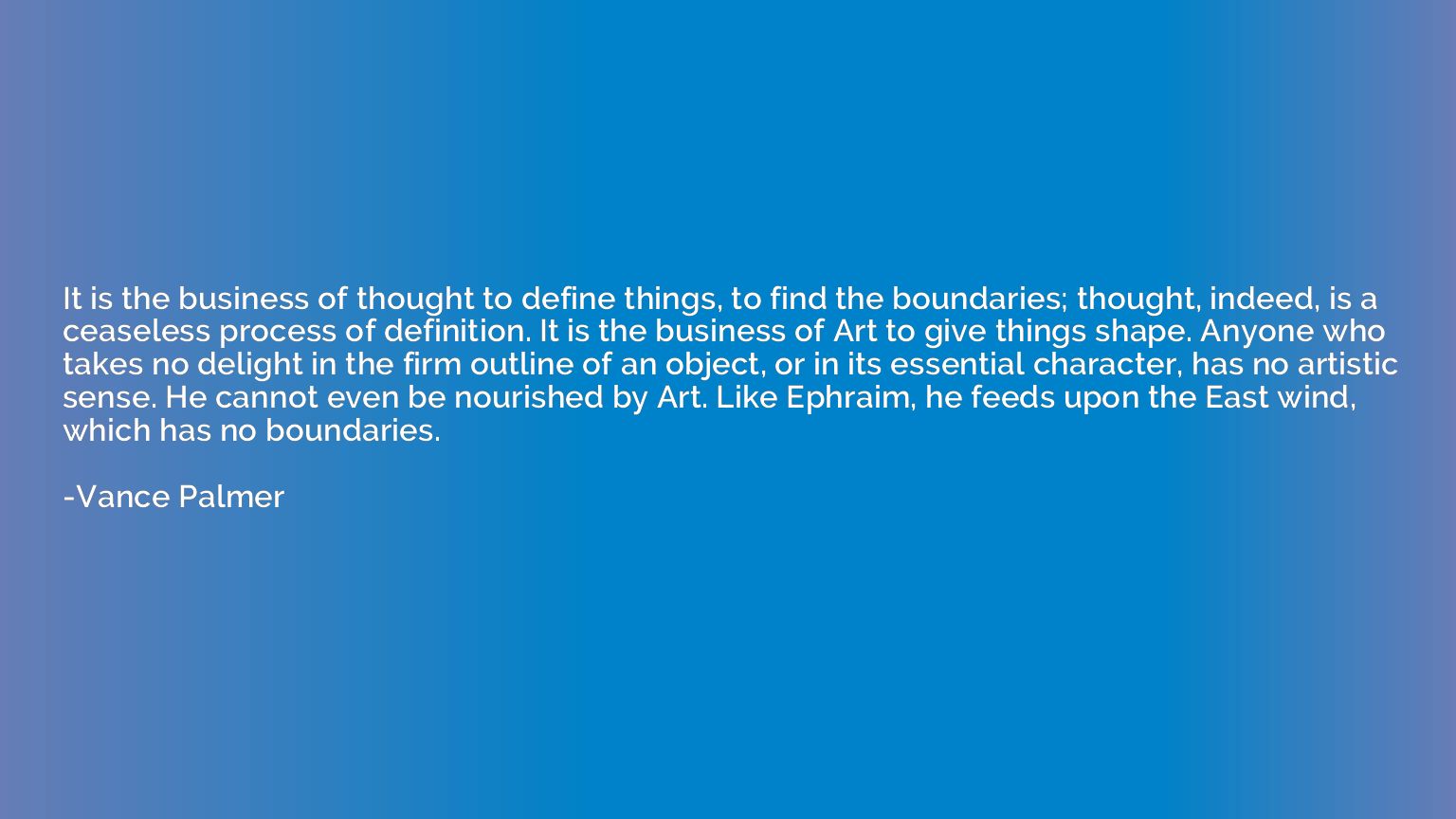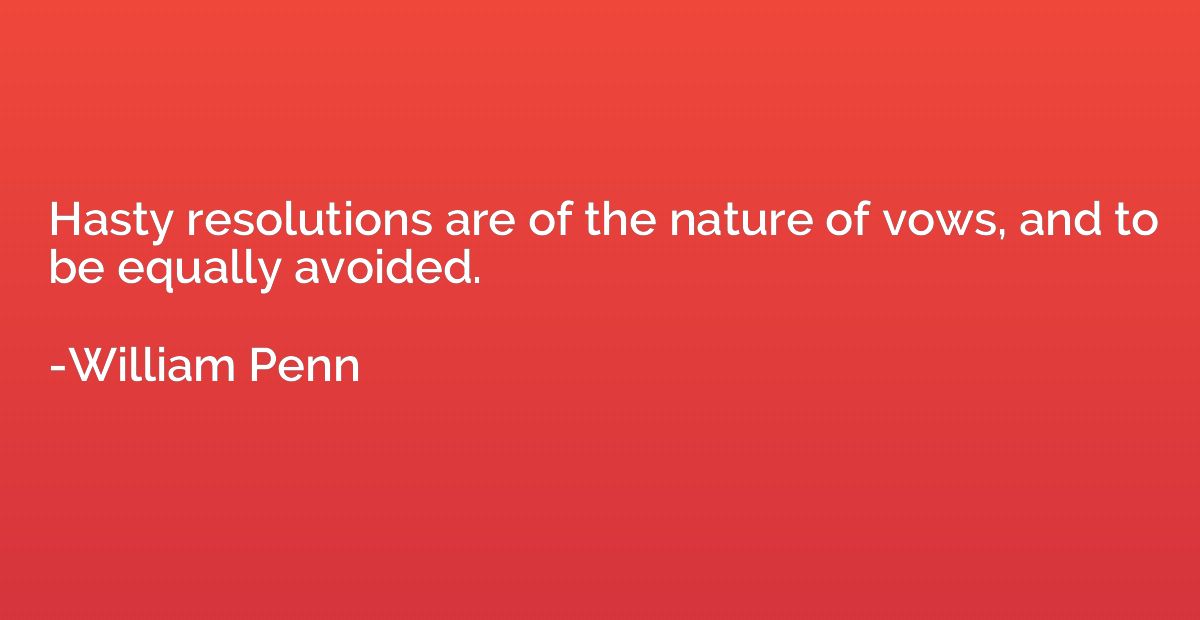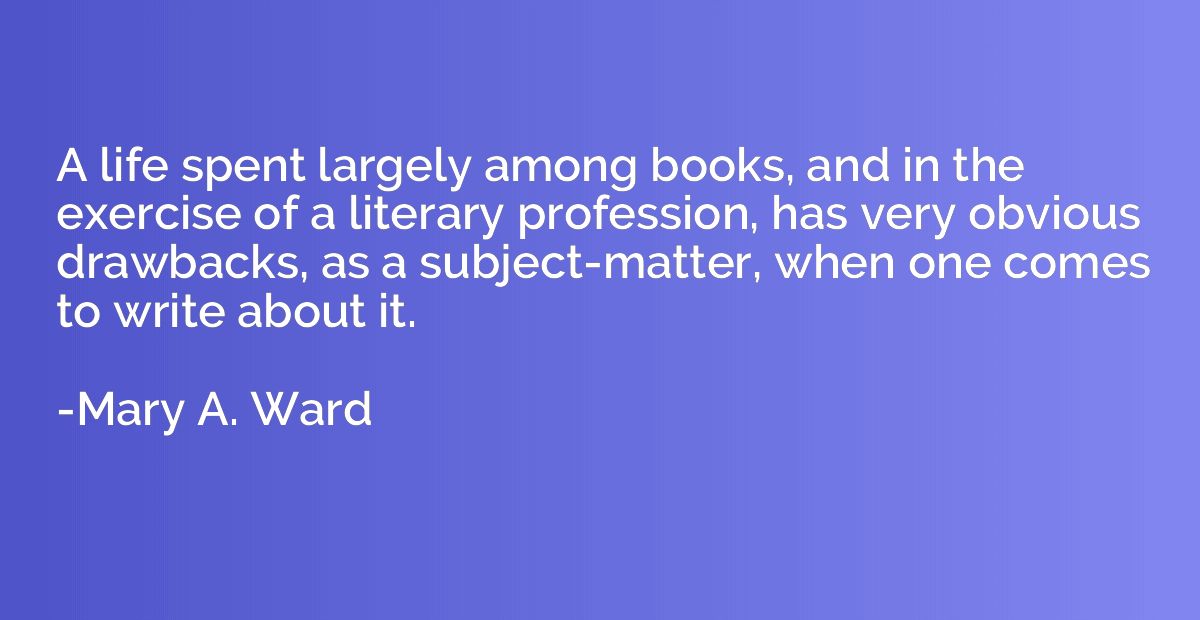Quote by Vance Palmer
It is the business of thought to define things, to find the boundaries; thought, indeed, is a ceaseless process of definition. It is the business of Art to give things shape. Anyone who takes no delight in the firm outline of an object, or in its essential character, has no artistic sense. He cannot even be nourished by Art. Like Ephraim, he feeds upon the East wind, which has no boundaries.

Summary
This quote highlights the distinction between thought and art. It suggests that the role of thought is to define and establish boundaries, to continuously analyze and outline concepts. On the other hand, art's purpose is to shape and give form to things. The quote further suggests that individuals who lack an appreciation for the clear definition and inherent qualities of objects and concepts lack artistic sensibility. Ultimately, they are unable to derive satisfaction or fulfillment from art, as they consume ideas without boundaries, akin to feeding on an intangible force like the East wind.
Topics
Perception
By Vance Palmer














